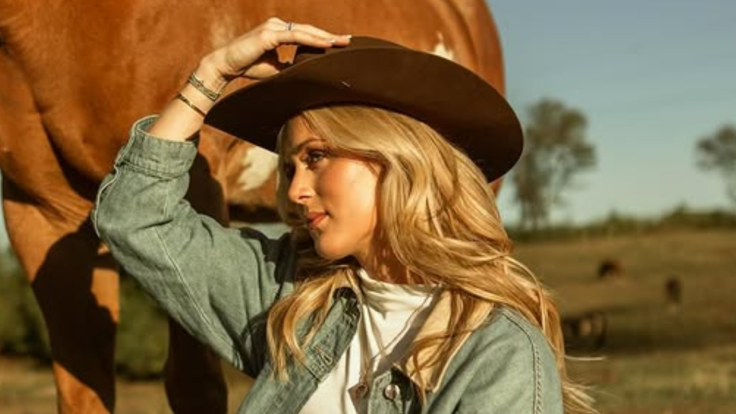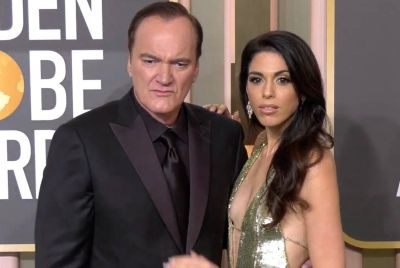Riley Gaines: From NCAA Champion to the Face of America's Gender in Sport Debate
Her clash with AOC has reignited the national debate over gender in sport

Once celebrated for her dominance in the NCAA swimming pool, Riley Gaines has become one of the most polarising figures in American sport.
The 25-year-old former University of Kentucky star has traded swim caps for microphones, diving headfirst into the fiery national debate over transgender inclusion in women's sports.
What began as a collegiate rivalry has since transformed Gaines into a political lightning rod, clashing publicly with lawmakers, athletes and activists, including Congresswoman Alexandria Ocasio-Cortez (AOC).
Her outspoken stance followed a controversial NCAA race that catapulted her into the headlines and reshaped her career. Today, the once soft-spoken swimmer is a prominent campaigner, media regular and rallying figure for those demanding tighter definitions of fairness in women's sport.
From Pool Record Holder to Public Campaigner
During her time at the University of Kentucky, Gaines was a decorated swimmer, earning multiple All-American honours and setting school records.
Her defining moment, however, came at the 2022 NCAA Women's Swimming Championships, where she tied for fifth place with Lia Thomas, a transgender athlete from the University of Pennsylvania, in the 200-yard freestyle final.
The result triggered national debate about fairness and eligibility in women's sports.
Gaines later described feeling frustrated that the NCAA gave the event's sole trophy to Thomas despite their identical finish times, saying that the experience opened her eyes to what she viewed as an imbalance in competitive policy.
Following her graduation, she began speaking at universities and events, advocating for policy changes she believes would preserve the integrity of women's competition.
When AOC Entered the Debate
The controversy surrounding Gaines deepened when she clashed indirectly with AOC, one of America's most prominent progressive lawmakers. As reported by the Daily Mail, AOC mocked Gaines's fifth-place NCAA finish on social media, writing: 'Maybe if you channelled all this anger into swimming faster you wouldn't have come in fifth.'
Maybe if you channeled all this anger into swimming faster you wouldn't have come in fifth. https://t.co/gkiEyZ8JGX
— Alexandria Ocasio-Cortez (@AOC) October 27, 2025
And I would like to challenge this person to get a real job. https://t.co/N4vCl3lJx0
— Alexandria Ocasio-Cortez (@AOC) October 27, 2025
The post quickly spread online, prompting a sharp response from Gaines and reigniting debate over fairness in women's sport.
In response, Gaines criticised the congresswoman and other Democratic figures during a Fox News interview, accusing them of 'ignoring fairness in women's sports'.
AOC has not publicly responded further, but the exchange amplified the debate, pushing Gaines further into the political spotlight.
The Lia Thomas Rivalry That Sparked a Movement
What began as a sporting tie soon became symbolic of a broader political and cultural divide. Gaines and Thomas became the two faces of a nationwide argument, one side championing inclusion, the other fairness.
Gaines's advocacy has since influenced multiple legislative proposals, including the so-called 'Riley Gaines Act' in West Virginia, which seeks to define male and female categories in state law.
She has also joined other female athletes in a legal case, Gaines v. NCAA, challenging the association's transgender participation rules.
A Voice Beyond the Pool
In addition to her activism, Gaines has expanded her influence through conservative media appearances, podcasts, and speaking tours.
She was recently appointed to the Sumner County Library Board in Tennessee, a move that drew attention for linking her sports advocacy with local politics.
She continues to use her platform to advocate for what she calls biological integrity in sport, gaining support from conservative audiences while facing criticism from LGBTQ+ and inclusion advocates.
Away from the spotlight, Gaines lives with her husband, British swimmer Louis Barker, and their daughter, Margot.
Her story, once rooted in athletic competition, now bridges sport, politics and culture, a reflection of how one NCAA race evolved into a defining chapter of America's ongoing gender debate.
© Copyright IBTimes 2025. All rights reserved.





















